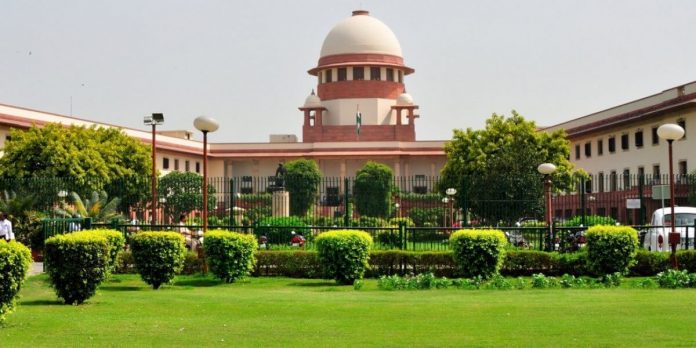This article is written by Anushka Singhal, a student of Symbiosis Law School, NOIDA. In this article, she tries to discuss the issue of internet shutdowns and some major cases related to it.
Table of Contents
Introduction
The 21st century is the age of technology. We have significant technological advancements, with the internet being one of them. Initially, it was just a ‘luxury’ but now it has become a ‘need’. Especially during the last one and a half years, we have all been doing everything ‘online’. From education to jobs, from shopping to weddings, from doctor’s visits to funerals, everything is being done via the internet. One cannot imagine an ‘internetless’ life. But we know that, with ‘use’ comes the ‘misuse’. The internet has also become the source of spreading terrorism and hatred in the society. To curb such instances, the government sometimes shuts down the internet. The question arises – are these shutdowns valid? Do they violate our fundamental rights? This article tries to answer such questions.
Internet shutdowns in India
Internet shutdowns have become common in India nowadays. When Article 370 of the Indian Constitution was abrogated, it was the internet that was first shut down. The fear of violence and upheavals was in the backdrop of the government’s mind when the internet was shut down in Jammu and Kashmir. Internet shutdown is defined as an intentional disruption of the internet services in a particular area. According to a report, India witnessed 109 internet lockdowns in the year 2020 against the 155 lockdowns all over the world. Thus, India stood at the first position followed by Yemen and Ethiopia respectively. Jammu and Kashmir witnessed the longest internet shutdown which started in 2019 with the abrogation of Article 370 was finally lifted after a long gap of 18 months in February 2021. 2G services were resumed in between but these were not enough. It was on 5th February that the Union Territory was able to enjoy the internet services. The internet was also shut down in the northern states due to the Anti-CAA protests. In December 2019, a major internet blackout happened in Assam to control the protests against the Citizenship Amendment Act that was proposed to be presented in the Rajya Sabha. The state of Bengal also witnessed such a shutdown after the protests in 24 North Pargana and if we count, we will observe that quite a large number of Indian cities and states bore the brunt of internet shutdowns. Thus, internet blackouts have become a common phenomenon to curb violence and protests and the officials do not think twice whenever there is some protest or a threat to national and public security.
Article 19 of the Constitution – do internet shutdowns violate it?
Article 19 of the Indian Constitution, provides us with the freedom of speech and expression, the freedom to assemble peacefully, form unions, move freely, reside anywhere and to practice any trade or profession of our choice, subject to certain restrictions. It has been contended several times in the courts that the internet shutdowns violate our freedom of speech and expression along with violating the right to trade and profession. Article 19 is a right and as it is a universal truth that ‘every right comes with a restriction’, there are certain restrictions to Article 19. The internet lockdowns fall under the header of such restrictions unless they are unreasonable. Internet lockdowns are considered both procedural and statutory. They are procedural, i.e. between the government and service provider and they are statutory when imposed under the Indian Telegraph Act, 1885 (Section 5), Section 69-A of the Information and Technology Act, 2000 and Temporary Suspension of Telecom Services (Public Emergency or Public Safety) Rules, 2017 and even under Section 144 of the Criminal Procedure Code (CrPC). As held by the Hon’ble Supreme Court in Anuradha Bhasin v. UOI (2020), the shutdowns do not violate Article 19 of the Indian Constitution. It acts as a reasonable restriction and it should only be enacted if there is a genuine threat to public safety or national security. Certain balancing tests should be carried out and only if extremely necessary, the government should proceed with this extremely restrictive step. The court in Anuradha Bhasin v. UOI (2020) cited the Oake’s test of Canada. In this test, the following points are to be kept in mind-
- The government should establish that the goal of a particular step is very crucial.
- The court conducts a proportionality analysis wherein it needs to be shown that the law does not blatantly interfere with the rights; it has a logical purpose and has proportionate effects.
Taking cues from the Canadian test, one must observe that if the internet shutdown blatantly takes away the rights under Article 19 without any solid backing, then it is, of course, against the Constitution, otherwise, it falls within the sphere of law. In the case of Modern Dental College v. State of Madhya Pradesh (2016), the Hon’ble Supreme Court held that there are no absolute constitutional rights except a few. Therefore, imposition of internet shutdowns is valid to the extent that it does not become an instrument in the hands of the government to suppress dissent. Like the governments impose a curfew to stop riots, similarly internet shutdowns can be used and it would not be a violation of Article 19. Even the government has amended the Temporary Suspension of Services Rules and now the internet can be shut down for not more than 15 days. This step would ensure the protection of our constitutional rights to a great extent.
Landmark cases related to internet shutdowns
Following are some benchmark cases related to internet shutdowns-
- Anuradha Bhasin v. Union of India
Passed on – 10 January 2020
Bench – Justice N.V. Ramana and Justice V Ramasubramanian
Facts– In this case, Anuradha Bhasin, a journalist and Gulam Nabi Azad, an Indian politician knocked at the doors of the court against the internet shutdown in Jammu and Kashmir. They contended that due to the shutdown Articles 19 and 21 of the Indian Constitution were being violated. A security order was passed by the home secretariat on 4th August 2019. This order asked the Amarnath Yatris to go back as well as it blocked the internet services, landlines and the mobile networks. Soon after this, the President issued an order applying all the provisions of the Indian Constitution to Jammu and Kashmir. Since then, the internet was shut down in the Union Territories. There were restrictions on movement and gatherings and even a local newspaper was not allowed for publication and distribution. Thus, the writ jurisdiction of the Hon’ble Supreme Court was evoked by the petitioners and a case was filed under Article 32 of the Indian Constitution.
Judgment– The judgment began with a poem from the novel ‘A Tale of Two Cities’ and discussed some very crucial points. The Court held that the decision of the government was valid as the internet was shut down in the interest of public safety. The Court said that in such cases, one has to carry out a balancing test or we can say the test of proportionality. Though the Court gave the decision in favour of the government, it held that the government must be cautious when balancing liberty with public security. One should first approach the least restrictive action and then move towards the aggravated actions like complete shutdown. The Hon’ble Court took into consideration the prevalent terrorism in the union territories and thus held that the decision was in the favour of the people. It was held that Articles 19 and 21 were not violated in this case. The Court wanted to comment on whether the right to internet is a fundamental right or not but it refrained from doing so as no such thing was demanded by the petitioners or the respondents. This case exhaustively discussed the concept of rights and restrictions when it comes to fundamental rights and advised that a multifaceted approach needs to be adopted when it comes to the freedom of speech and expression.
- Bansashree Gogoi v. Union of India
Passed on – 19 December 2019
Bench – Justice Manojit Nhuyan and Justice Soumitra Saikia
Facts – In this case, several PILs were filed in the Guwahati High Court against the suspension of internet services in Assam. The Hon’ble Court clubbed all of them together and listened to them under this case. In this case, the petitioners requested the Hon’ble Court to restore the internet services as they were not able to carry out their day-to-day functions properly. The petitioners argued before the Court that as the curfew had already been lifted and there were no violent protests, the internet shutdown should also be lifted.
Judgment – The Hon’ble Court ordered the government to immediately lift the internet shutdown. While giving this order, the Court considered that in the interest of the public and its safety, the government could suspend the internet services but as the situation was peaceful the government could not impose such unnecessary restrictions.
- Foundation for Media Professionals v. Union Territory of Jammu and Kashmir
Dated – 11 May 2020
Bench – Justice RS Reddy and Justice NV Ramana
Facts – In this case, an organization named Foundation For Media Professionals approached the Court asking for the resumption of the 4G services in the union territory. The government had initially banned the internet services completely and now it had just resumed the 2G services. The petitioners contended before the Court that the above decision was going against the landmark judgment of Anuradha Bhasin. Further, the petitioners submitted that as all the work is being done online, the impugned orders of the government are hampering the day to day work of the residents. They also argued that since the situation was conducive for resuming 4G services, they should be resumed. Also, if later, the government finds that national security is being threatened, it can resume with the restrictive services in those vulnerable areas.
Judgment- The Court took cognisance of the circumstances and held that 4G internet was the need of the hour. But on the other side, it also held that national security is of utmost importance and cannot be compromised with (upholding the Anuradha Bhasin judgment). The Court also took cognisance of the fact that 4G services can be resumed in the territory with restrictions in certain areas. Therefore, it ordered the government to constitute a committee to examine the whole situation and consider the advice of the petitioners.
- Faheema Shirin R.K v. State of Kerala
Though this case was not completely about the shutdown of the internet at a large scale, it gave us insight into unreasonable restrictions on the usage of phones and the internet and the violation of Article 19 of the Indian Constitution.
Dated – 19 September 2019
Bench – Justice P.V Asha
Facts – This case is regarding the restrictions on usage of the Internet in the hostel premises. An 18-year-old girl residing in a government hostel was aggrieved by her expulsion from the hostel. The hostel rules said that the hostel girls would not be allowed to use their mobile phones and internet from 10 PM in the night to 6 AM in the morning. Aggrieved by such orders, the girl approached the authorities. Instead of solving her problem, she was asked to vacate the premises. Aggrieved by such orders, the petitioner approached the Hon’ble High Court.
Judgment – It was held that such restrictions were unreasonable and not necessary for maintaining discipline. The Court said that one should also see the positive aspects of the internet and mobile phone and not only the negative ones.
Conclusion
Internet shutdowns have become a new tool at the hand of the government. The government uses them as a safety valve whenever it thinks that there can be protests that can turn into disasters. But one needs to consider that such blackouts should be taken as a last resort. People should be educated about the use of the internet and awareness should be spread regarding fake messages. The internet has become an essential for life after food, clothing and shelter and thus it should be taken away only when it is extremely essential. The top position of India on the list of most internet shutdowns is alarming. One should now consider making the right to the internet a fundamental right that cannot be taken away except in cases of emergency. With the pandemic, we have realised the importance of the internet and thus, we may see more cases in the coming future on the internet and its shutdowns. Like we have started a campaign on several social issues, similarly, we can start a campaign for creating awareness about internet usage. If people will become aware then we will not have to resort to the shutdowns.
References
- https://thewire.in/tech/over-100-instances-of-internet-shutdown-in-india-in-2020-says-new-report
- www.indiankanoon.org
LawSikho has created a telegram group for exchanging legal knowledge, referrals, and various opportunities. You can click on this link and join:
https://t.me/joinchat/J_0YrBa4IBSHdpuTfQO_sA
Follow us on Instagram and subscribe to our YouTube channel for more amazing legal content.
 Serato DJ Crack 2025Serato DJ PRO Crack
Serato DJ Crack 2025Serato DJ PRO Crack











 Allow notifications
Allow notifications


